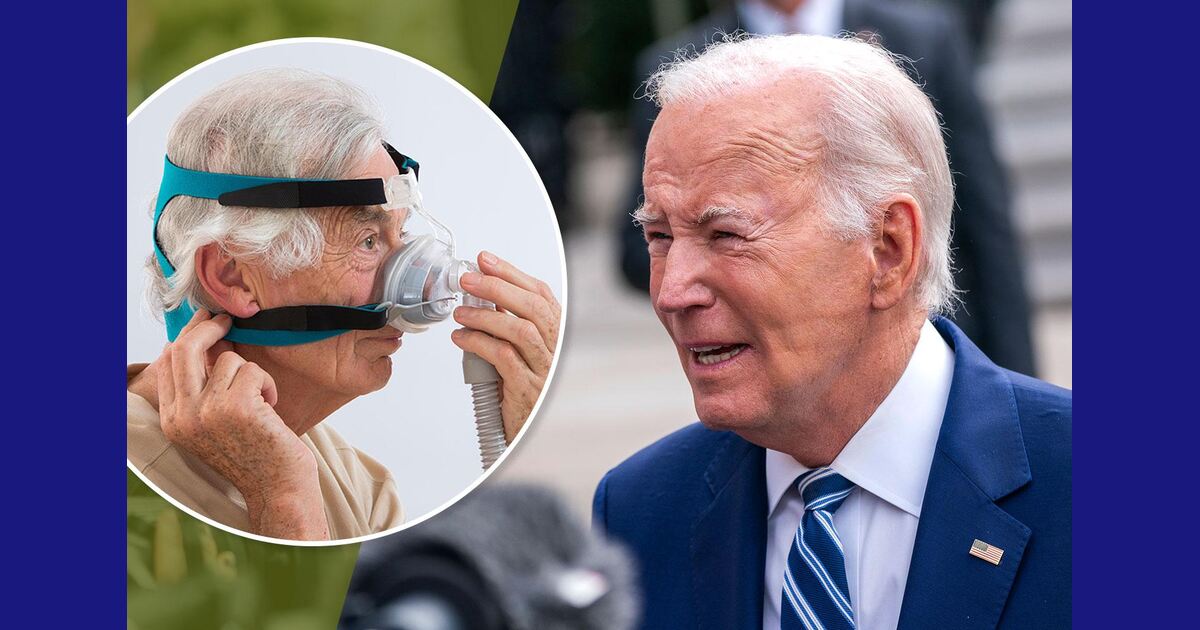Did you know that President Joe Biden, like millions of others, deals with a sleep disorder called sleep apnea? Let’s dive into what this condition means and its impact.
This serious sleep disorder is characterized by recurring episodes of interrupted breathing lasting at least 10 seconds.
Globally, an estimated 936 million adults aged 30 to 69, along with 25 million American adults, contend with this condition, often undiagnosed.
Obstructive sleep apnea, distinct from central sleep apnea, results from blockages in the airways caused by weakened, heavy, or relaxed soft tissues.
As individuals age, muscle tone naturally declines, affecting the soft palate and neck. This makes it more prevalent in those over 50, though severe cases can also affect younger individuals.
The Health Impact and Consequences of Untreated Sleep Apnea
When left untreated, obstructive sleep apnea significantly raises the risk of various health problems, including hypertension, heart disease, type 2 diabetes, depression, and even premature death.
The condition disrupts sleep patterns, leading to numerous “micro-awakenings” during the night, resulting in symptoms like excessive daytime sleepiness, loud snoring, dry mouth, sore throat, and morning headaches.
Treatment Options And How To Manage It
Effective treatment can restore normal breathing patterns and promote deep, restorative sleep. Weight loss can be a significant contributor to reducing or eliminating obstructive sleep apnea, as it reduces tissue mass in critical areas like the mouth, tongue, and neck.
Surgical interventions may be recommended for cases associated with anatomical issues such as nasal polyps, enlarged tonsils or adenoids, or a deviated septum.
Milder cases may respond well to “positional therapy,” which encourages individuals to sleep on their sides rather than their backs. This simple change can improve airway flow and reduce snoring.
One of the most common treatment methods is the Continuous Positive Airway Pressure (CPAP) machine, which employs a mask and hose to deliver a steady stream of air pressure, preventing airway blockages during sleep.
Modern CPAP machines allow physicians to remotely monitor patients’ sleep patterns and make necessary adjustments, providing relief from complications associated with sleep apnea, such as fatigue, high blood pressure, and sexual dysfunction.
The Significance of Deep Sleep
Deep sleep is a critical component of overall health, facilitating cellular repair, memory consolidation, and immune system functioning. However, individuals with sleep apnea experience frequent disruptions during the night, hindering their ability to reach the deepest stages of sleep.
This can impede the transition to the final sleep stage, rapid eye movement (REM) sleep, where dreams occur. Research shows that the absence of REM sleep can lead to memory deficits, cognitive impairment, chronic diseases, and an increased risk of premature death.
Seeking Help For This Condition
Many people with sleep apnea remain unaware of their condition, underscoring the importance of loved ones speaking up if they notice loud snoring or breathing interruptions during the night.
Anyone experiencing symptoms of sleep apnea should promptly seek evaluation by a sleep specialist to ensure early diagnosis and appropriate treatment.








Leave a Reply
You must be logged in to post a comment.